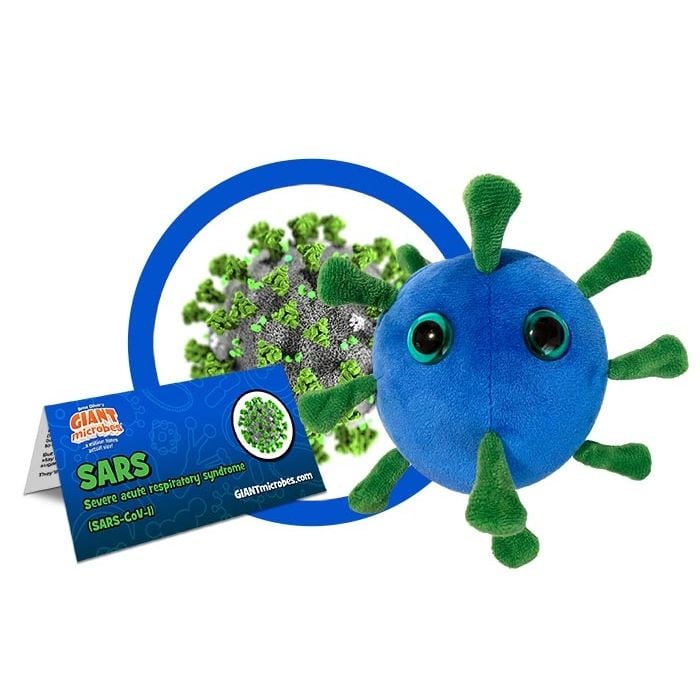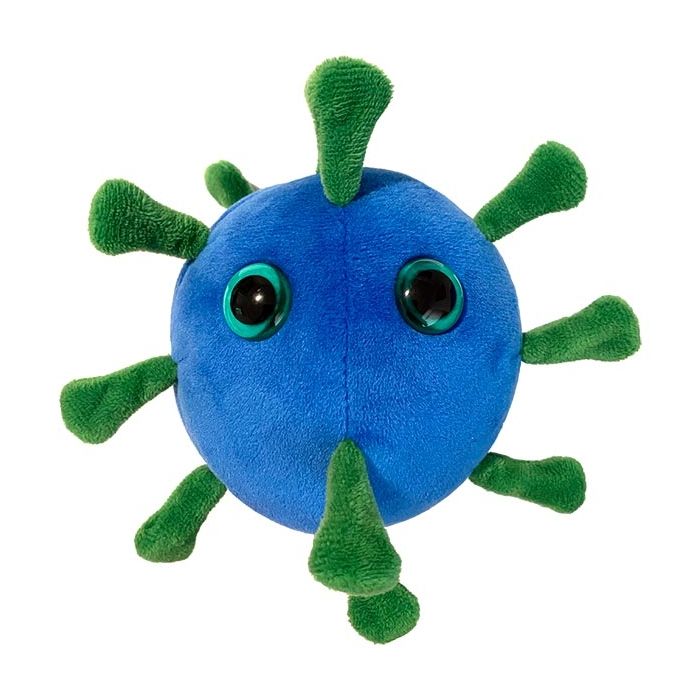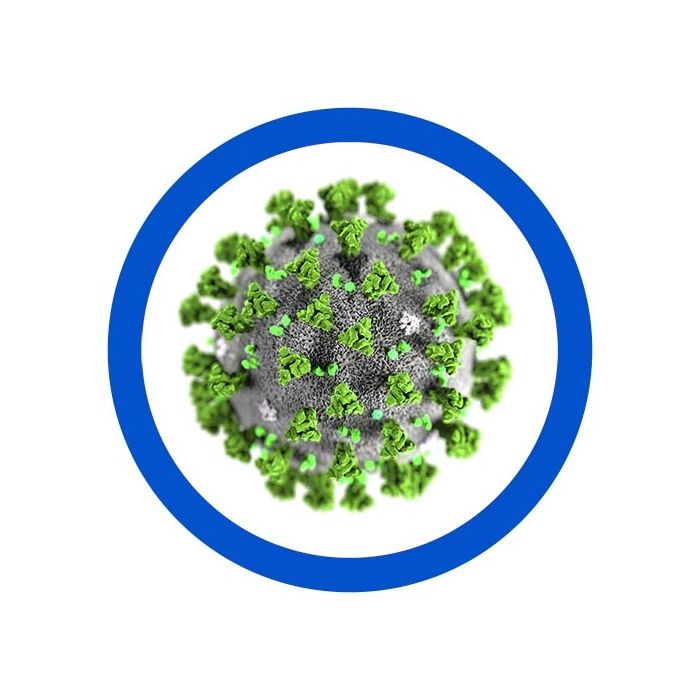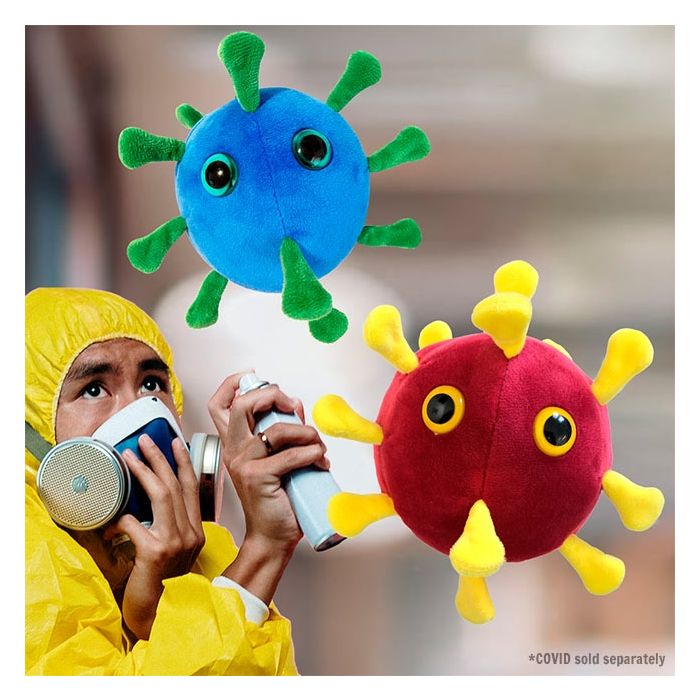SARS (SARS-CoV-1)
Product Details
Additional Information
| Sizes | Giantmicrobes are based on actual microbes, cells, organisms and other critters, only 1,000,000 times actual size! Gigantic (GG) 16-24" XL (XL) 10-15" Original (PD) 5-8" Keychain (KC) 2-4" with clip |
|---|---|
| Materials | Plush from all new materials. Stuffed with polyester fiber fill. Surface washable: sponge with water & soap, air dry. |
| Packaging | Each plush microbe includes a printed card with fun, educational and fascinating facts about the actual microbe or cell. |
| Safety | Every product meets or exceeds U.S. and European standards for safety. For ages 3 and up. |
All about SARS (SARS-CoV-1)
FACTS: Years before COVID-19 arose to plague our world, the first coronavirus epidemic to inflict serious illness upon people was SARS, severe acute respiratory syndrome. In 2003 the virus that causes this respiratory illness jumped from its animal host to humans. This disease started in China and then spread to 32 countries, infecting over 8,000 people and killing 774, mostly in Asia. In North America, Europe, Australia, Africa and Latin America, there was no community spread and very few cases of SARS. This is certainly not the case with the COVID-19 pandemic.
As with the coronavirus that causes COVID-19, the SARS virus is transmitted primarily through close person-to-person contact in droplets produced when a person coughs, sneezes or otherwise exhales viral particles. The symptoms of SARS are also similar to some of those for COVID-19, including high fever, body aches, shortness of breath and a dry cough. SARS is highly contagious and most dangerous to those with a compromised immune system. COVID-19 has spread in many types of locations, yet the vast majority of SARS cases were attributed to the lack of proper infectious disease control prevention in healthcare settings.
SARS was deadly but it did not become a global pandemic. Scientists were quick to identify this novel virus and health experts were efficient in isolating cases. Following the 2003 outbreak, there have been four known reappearances of SARS. Three were related to laboratories and the other was likely due to animal-to-human transmission. With SARS, humanity was also lucky. That coronavirus vanished and was nearly forgotten, that is until its cousin arose in a much bigger way to cause the COVID-19 pandemic.
Microbes are truly amazing and primarily they are good – necessary to our bodies and the planet Earth. But when it comes to the struggle against malaria, cholera, flu, measles and coronavirus diseases such as SARS and COVID-19, it often comes down to human brains versus microbe genes. If we want people to flourish, we must learn and respect the world of microbes.









